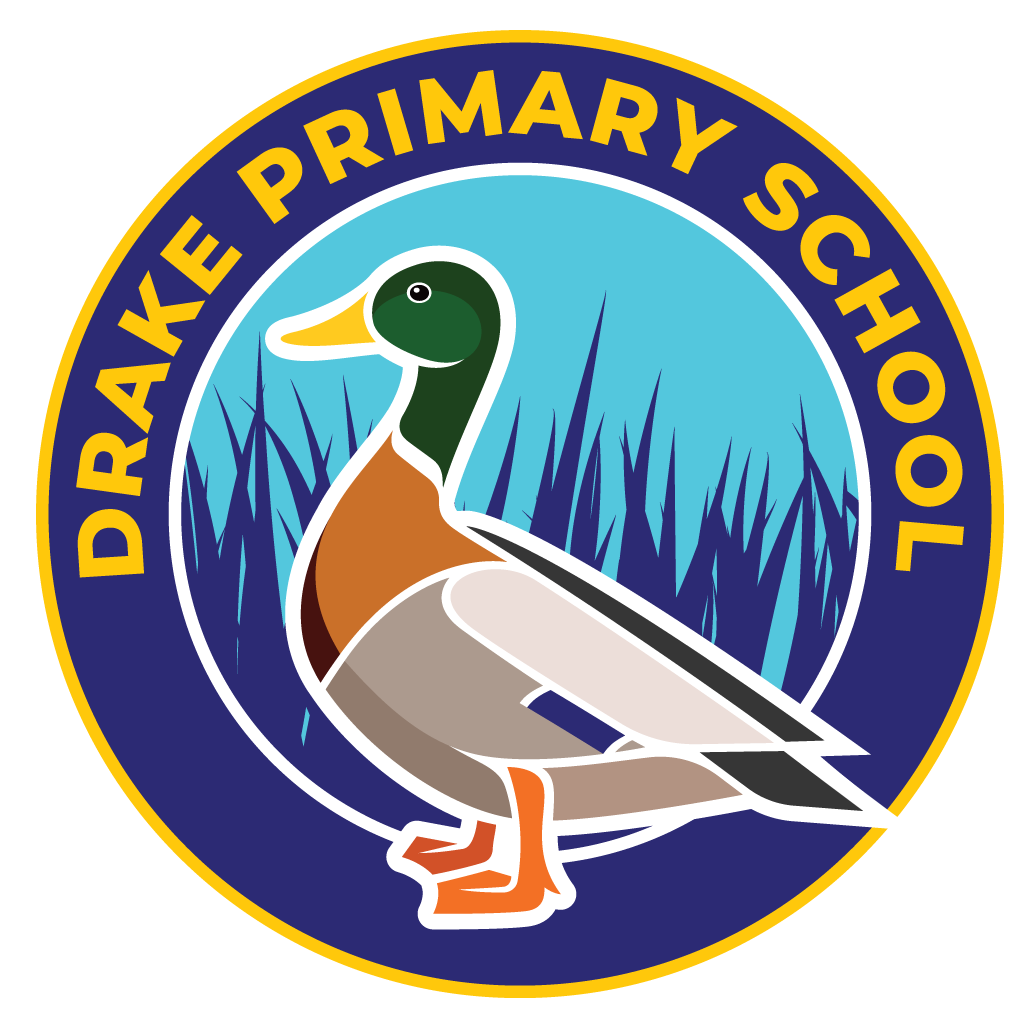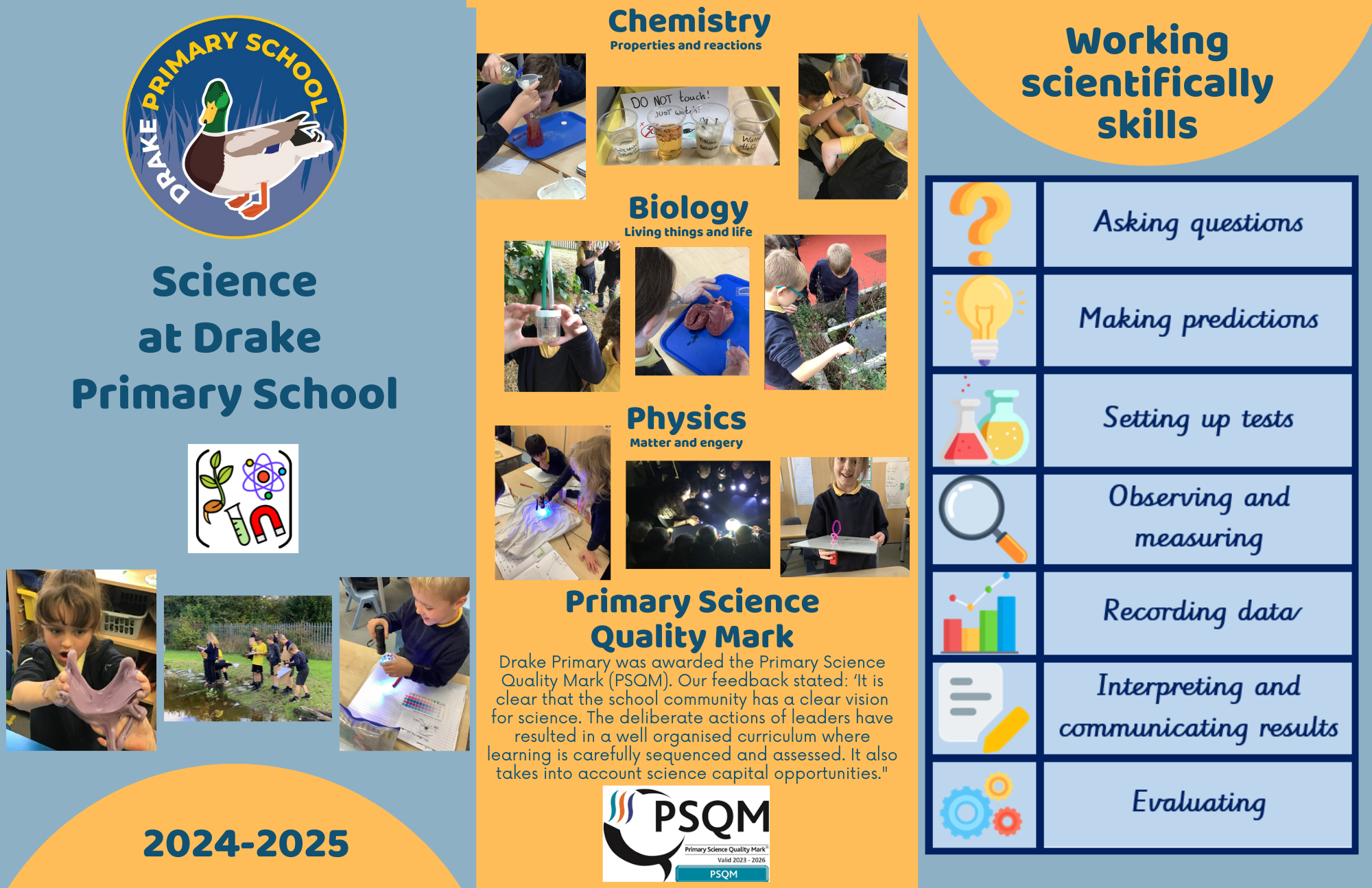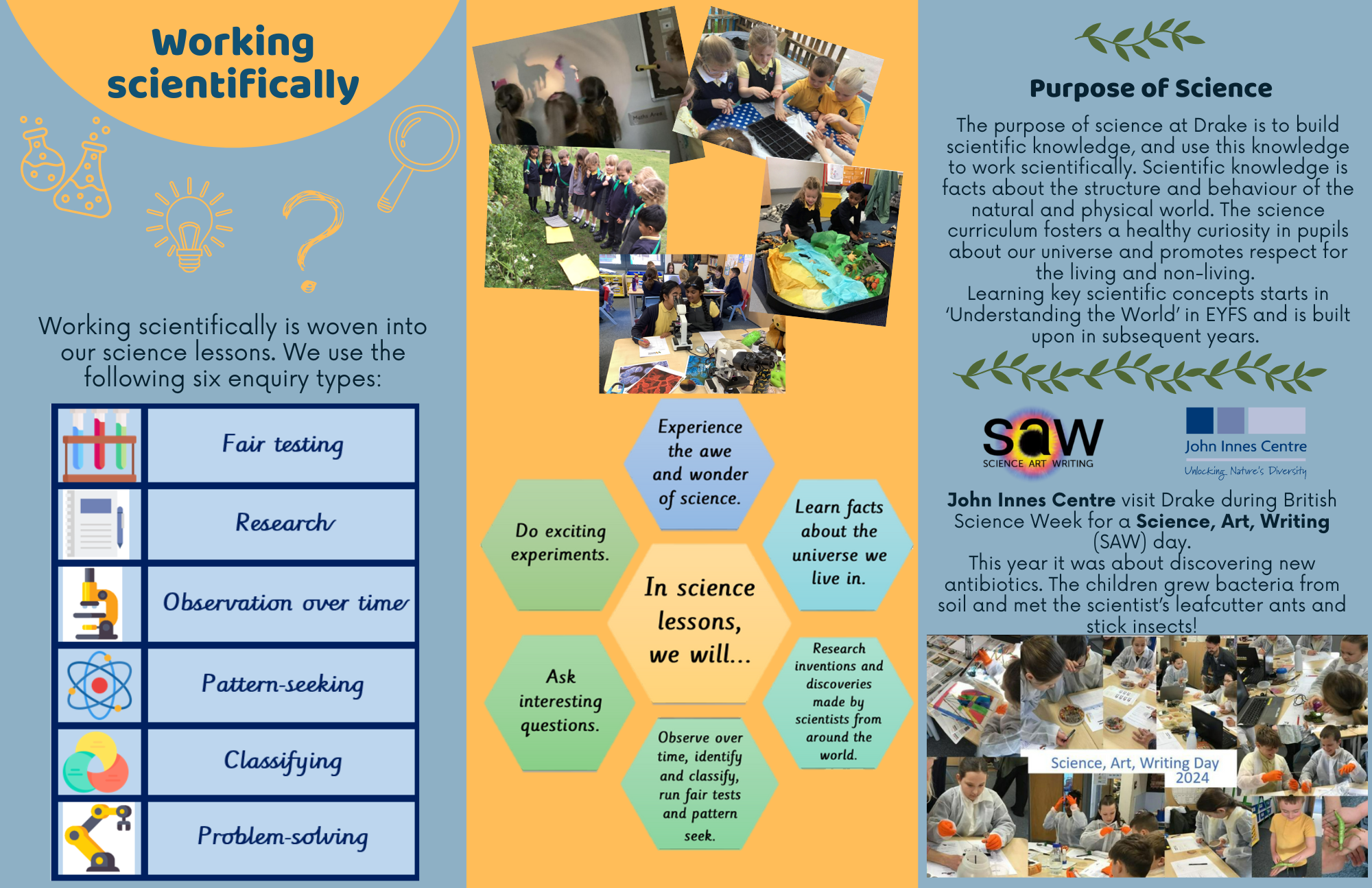Science
Vision and Principles
Our school and curriculum empower pupils to be advocates and agents of change for a more sustainable world.
Our mission is to inspire astronauts and zoologists of the future and build a curriculum of joy and curiosity:
- Children will experience the awe and wonder of science through the disciplines of biology, physics and chemistry.
- Children will discover and learn facts about the universe they live in.
- Children will develop scientific knowledge and use this knowledge to work scientifically.
- Children will undertake the 5 types of scientific enquiry: fair testing, observing over time, identifying and classifying, pattern seeking and research. These enquiries will help them answer scientific questions about the world around them.
- Children will be encouraged to explore, discover and be curious.
- Children will do hands on practical experiments and will explain what they are doing and why. They will learn the scientific skills needed to understand the uses and implications of science today and in the future.
Intent
Our science curriculum is determined by:
- Reception: Early years foundation stage statutory framework
- Key Stage 1 and 2: National Curriculum Science Programme of Study
At Drake Primary School, our curriculum aims to ensure that all pupils:
- Develop scientific knowledge and conceptual understanding through the specific disciplines of biology, chemistry and physics.
- Develop an understanding of the nature, processes and methods of science through different types of science enquiries that help them to answer scientific questions about the world around them.
- Are equipped with the scientific skills required to understand the uses and implications of science, today and for the future (Department for Education, 2013).
The purpose of science at Drake Primary School is to build scientific knowledge, and use this knowledge to work scientifically. Scientific knowledge is facts about the structure and behaviour of the natural and physical world. The science curriculum fosters a healthy curiosity in pupils about our universe and promotes respect for the living and non-living.
Implementation
Science is taught once a week, for two hours, using the Developing Experts tools. Lessons comprise a mixture of knowledge acquisition and experiments or investigations. Science lessons include explanation, modelling, scaffolding and practice. Working scientifically is embedded alongside subject knowledge and practical activities are undertaken to develop a deeper understanding of the associated scientific concepts (Ofsted, 2021).
Our science curriculum builds on children’s prior learning; giving them the opportunity to embed their knowledge and develop new scientific skills. We use the following six types of scientific enquiry:
- Comparative / Fair testing
- Research
- Observation over time
- Pattern-seeking
- Identifying, grouping and classifying
- Problem-solving
Experiments allow pupils to test hypotheses and challenge their perceptions of the world around them. At Drake Primary School, we encourage pupils to be inquisitive in science lessons, asking questions and testing out their ideas. We aim to create resilient learners who are problem solvers, able to gather and assess data, can work in teams and independently. We provide a wide range of experiences, including outdoor learning to aid the advancement of knowledge and skills in preparation for the future. We use current science research as exemplars and stimuli for learners. We have links with the John Innes Centre and their cutting-edge scientific research with the aim of inspiring the next generation of researchers.
We ensure that working scientifically skills are built-on and developed throughout children’s time at Drake Primary School, so that they can apply their knowledge of science when using equipment, conducting experiments, building arguments and communicating concepts confidently. Over the course of the year, each year group completes a BioBlitz. This gives the children opportunities to apply their working scientifically skills and observe changes over time in an area of the school grounds. The children gather evidence, take accurate measurements, analyse data and draw conclusions.
Teachers promote a positive attitude to science learning within their classrooms and reinforce an expectation that all pupils are capable of achieving high standards in science. Our whole school approach to the teaching and learning of science involves the following:
- Long-term plans for each year group are mapped by the subject leader, in consultation with the senior leaders. Long-term plans include curriculum coverage, key concepts, common misconceptions, enquiry suggestions, key scientists and vocabulary.
- Science is taught in units by class teachers. Where appropriate, science lessons are linked to cross-curricular themes in order to achieve a greater depth of knowledge. At other times, science is taught discreetly.
- Science is taught once a week for two hours. Lessons comprise a mixture of knowledge acquisition and experiments or investigations.
- The units of study describe a sequence of knowledge and concepts. The science curriculum focusses on key scientific concepts, beginning in EYFS and being built upon in subsequent years (Ofsted, 2021). Teachers ensure pupils develop secure understanding of each key block of knowledge before progressing to the next stage. The key concepts act like threads running from Reception to Year 6.
- In each unit, children research related discoveries, inventions and scientific breakthroughs. From Reception to Year 6, a diverse range of scientists are studied, from around the world, with a range of ethnicities, religions, special educational needs and genders.
- The children who attend the Autism Specialist Resource Base (SRB) sometimes access science in the mainstream classroom. At other times, science learning is driven by themes and children’s interests.
- A teacher may record science learning by taking photos or videos on an iPad, recording a discussion on a flip chart, creating a floor book or display.
- Curiosity is celebrated in the classroom. At the start of each science unit, teachers will use concept questions to find out what the pupils already know and uncover any misconceptions about the unit.
- During science lessons, ideas are discussed, misconceptions corrected and ideas tested. Talk is valued in science lessons, whereby the teacher guides children’s understanding and children are encouraged to use talk effectively to guide peer understanding (Mercer et al., 2009).
- New vocabulary, sentence stems and challenging concepts are introduced through direct teaching. We also use science knowledge organisers to encourage independent science learning.
- Teachers model how to use working scientifically skills and scientific equipment.
- Pupils use outdoor learning and Forest Schools to develop an understanding of their environment. Our engagement with the local environment ensures that pupils learn through varied and first-hand experiences of the world around them.
- Experts are invited in, in person and virtually to develop understanding and increase exposure to STEM subjects. Pupils learn the possibilities for careers in science and have access to positive role models within the field of science. Pupils are offered a wide range of extracurricular activities, visits, workshops and visitors. These are purposeful and link with the knowledge that is being taught in class to broaden the curriculum.
- Events such as British Science Week, Big School Birdwatch and Switch Off Fortnight are celebrated and provide broader provision and application of knowledge and skills.
Impact
‘Teachers need to know about their pupils' progress and difficulties with learning so that they can adapt their own work to meet pupils' needs’ (Black, 1998). In science, teachers use elicitation activities at the start of every unit to assess what children already know. This allows the teachers to uncover any misconceptions, see the strengths in their class and spot any gaps in knowledge. Once the teacher has analysed the successes, gaps and misconceptions, the teacher adapts their teaching to suit the needs of their class.
Towards the end of each term, the children are assessed with a progress test. This scaled score, alongside the content of exercise books and contributions to class science discussions, informs teacher assessment. Teachers input termly assessment data for their class onto our tracking software, Compass. Data analysis and QLA is undertaken by the science lead to spot patterns, trends, and to check we are meeting the needs of our pupils.
There is a termly book look, environment walk and learning walk cycle, where teachers get feedback from the science lead on their teaching and learning. Pupil and staff voice is collected termly and feeds into the science action plan.
References:
Black, P. and Wiliam, D. (1998) ‘Inside the Black Box: Raising Standards through Classroom Assessment.’ The Phi Delta Kappan, 80 (2), pp. 139-148.
Department for Education (2013) 'Science programmes of study: key stages 1 and 2, National curriculum in England.' Available at: https://www.gov.uk/government/publications/national-curriculum-in-england-science-programmes-of-study (Accessed: 28 April 2024).
Mercer, N., Dawes, l., and Staarman, J. K. (2009) ‘Dialogic teaching in the primary science classroom.’ Language and Education, 23 (4), pp. 353-369.
Ofsted (2021) ‘Research review series: science.’ [Online] Available at: https://www.gov.uk/government/publications/research-review-series-science (Accessed: 28 April 2024).


